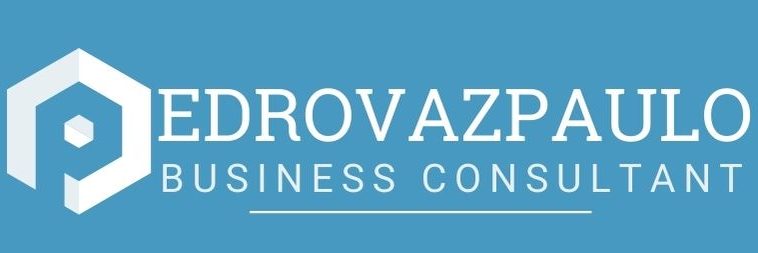Are you a business leader wondering how to develop stronger leadership skills, balance competing priorities, or navigate complex organizational challenges? Do you sometimes feel stuck, struggling to lead your team effectively through difficult transitions? These are the everyday challenges that many executives face, and it’s where leadership executive coaching steps in to provide clarity, guidance, and a fresh perspective.
If you’ve been questioning how to achieve your full leadership potential or take your organization to the next level, you’re not alone. Many senior executives, including yourself, struggle with leadership in today’s fast-paced, ever-changing corporate world. Luckily, the solution to these common struggles lies in the personalized and results-driven process of executive coaching.
Why Leadership Executive Coaching is Crucial for Today’s Leaders
The corporate landscape is more dynamic and competitive than ever. The desire for strong leadership has never been higher. However, being a successful leader entails more than simply managing tasks and supervising personnel. It involves ongoing self-awareness, strategic thinking, and the capacity to adapt to changing obstacles. Here’s where executive coaching proves its immense value.
Coaching offers more than just a temporary solution to a problem. It offers a long-term route to personal development and professional success. Coaching has an impact not just on individuals but also on the company as a whole. By investing in leadership executive coaching, companies foster improved decision-making, heightened emotional intelligence, and stronger team dynamics. These factors ultimately contribute to organizational success.
What Exactly Is Leadership Executive Coaching?

Executive coaching is a highly personalized development process designed to improve an individual’s leadership capabilities. Unlike general leadership training, coaching is tailored to each leader’s specific needs, goals, and challenges. Whether it’s improving communication skills, mastering strategic thinking, or addressing organizational issues, coaching aligns with what leaders need most.
Coaches act as trusted advisors, providing insights and feedback based on a leader’s behavior, leadership style, and organizational role. By addressing blind spots and offering practical strategies, coaching creates a space for executives to reflect on their strengths and development areas. This method not only increases personal development, but it also improves corporate outcomes.
The Benefits of Leadership Executive Coaching
The impact of executive coaching extends far beyond the individual. Organizations that prioritize coaching experience enhanced performance across the board. Below are some key benefits:
1. Enhanced Leadership Skills
Leaders are typically required to inspire, encourage, and drive teams to achieve corporate goals. Executive coaching helps leaders sharpen these critical skills by developing their ability to lead with confidence and strategic insight. Through continuous feedback and one-on-one coaching sessions, leaders can identify gaps in their leadership approach and adopt new strategies that lead to better results.
2. Increased Self-Awareness
In any leadership role, self-awareness is crucial. Knowing your strengths and shortcomings enables you to change your leadership style and enhance your interactions with others. Executive coaching helps individuals recognize their behavioral patterns, understand how they impact their teams, and develop the emotional intelligence needed for effective leadership.
3. Improved Decision-Making
In today’s work world, making confident judgments is a critical ability. Coaches provide leaders with the tools they need to analyze situations from different angles, explore alternative solutions, and ultimately make better, more informed decisions. By working with an executive coach, leaders enhance their ability to make decisions that benefit the organization as a whole.
4. Better Team Performance
Great leadership doesn’t happen in a vacuum. It’s about fostering high-performing teams that drive success at all levels of the organization. Executive leadership coaching equips leaders with the skills to motivate their teams, delegate effectively, and resolve conflicts, leading to improved team dynamics and greater organizational success.
5. Accelerated Professional Growth
The structured coaching process allows for rapid personal development. Leaders who engage with an executive coach often find that they progress much faster toward their career goals. Coaches help them set clear objectives, hold them accountable, and provide ongoing feedback to ensure consistent growth.
Common Leadership Challenges and How Coaching Addresses Them

Leaders at all levels face similar challenges, whether it’s managing organizational change, resolving conflicts, or maintaining a healthy work-life balance. Executive coaching is meant to address these unique challenges and transform them into growth opportunities. Below are some common leadership challenges and how coaching helps overcome them:
1. Managing Change
In today’s fast-paced corporate environment, managing organizational transformation can be challenging. Whether it’s coping with corporate reorganization, managing a merger, or embracing new technology, change is continuous. Coaching helps leaders navigate this complexity by equipping them with tools to manage resistance and ensure successful implementation of new strategies.
2. Building and Leading High-Performing Teams
Building high-performing teams is one of the most critical leadership responsibilities. Executive coaching provides strategies for team building, fostering collaboration, and enhancing communication. Coaches guide leaders on how to motivate their team members, set clear expectations, and drive team performance.
3. Balancing Priorities
For executives, balancing multiple responsibilities can feel overwhelming. Through coaching, leaders can learn effective strategies for time management, priority setting, and delegation, allowing them to focus on high-impact tasks and balance their professional and personal lives.
4. Dealing with Conflict and Difficult Conversations
Whether it’s resolving interpersonal conflicts or managing difficult conversations with stakeholders, conflict resolution is an essential leadership skill. Executive coaching teaches leaders how to handle these situations tactfully, ensuring positive outcomes for the organization.
5. Maintaining Work-Life Balance
In the high-pressure world of business leadership, maintaining a healthy work-life balance can be a challenge. Coaching helps leaders set boundaries, prioritize their personal well-being, and achieve a sustainable balance between their professional and personal commitments.
The Executive Coaching Process: How Does It Work?

The coaching process is organized, yet flexible, intended to fit the particular needs of each leader. Typically, the coaching process involves several stages, each tailored to support growth and development.
1. Initial Assessment and Goal Setting
The trip begins with a comprehensive assessment of the leader’s strengths, development areas, and goals. This initial stage sets the foundation for the coaching engagement, helping both the leader and the coach to understand where improvement is needed.
2. One-on-One Coaching Sessions
The core of the executive coaching process is the one-on-one sessions between the leader and their coach. These sessions are designed to address specific challenges, explore growth opportunities, and develop strategies that align with the leader’s goals.
3. Feedback and Insights
Throughout the coaching process, leaders receive valuable feedback from their coach. This feedback helps leaders acquire self-awareness, assess their influence on others, and discover areas of growth. This stage is crucial for personal development.
4. Action Planning and Accountability
Executive coaching is results-oriented, so each session closes with an action plan. Coaches ensure that leaders follow through on their commitments by holding them accountable for the actions they take.
5. Evaluation and Follow-up
The coaching journey doesn’t end with the final session. Coaches typically conduct follow-up evaluations to ensure that the leader’s growth is sustainable and that the insights gained are applied consistently in their leadership role.
Finding the Right Executive Coach for Your Needs
Choosing an ideal executive coach may make a huge impact in the coaching experience. Here are a few key factors to consider when choosing a coach:
- Experience and Expertise: Look for coaches who have extensive experience in leadership coaching and have worked with clients in roles similar to yours.
- Chemistry and Fit: A successful coaching relationship depends on a strong personal connection. Choose a coach you feel comfortable with.
- References and Success Stories: Reviewing success stories from previous customers will help you understand the coach’s style and efficacy.
- Alignment with Goals and Values: Ensure the coach understands your leadership goals and aligns with your organization’s values.
- Support and Resources: Some coaches offer additional resources such as leadership assessments or tools to support ongoing development.
Measuring the Effectiveness of Executive Coaching
Evaluating the performance of an executive coaching program is critical for understanding its effects. Here’s how you can measure its effectiveness:
- Goal Achievement: Have the goals set during the initial assessment been met?
- Performance Metrics: Is there a measurable improvement in organizational performance, such as increased revenue or employee engagement?
- Feedback and Surveys: Gathering feedback from peers, direct reports, and stakeholders is a valuable way to assess changes in leadership behavior.
- Self-Reflection: Leaders should continuously reflect on their progress and set new goals.
- Long-Term Impact: Tracking the leader’s long-term development ensures that the benefits of coaching are sustained.
Conclusion: Investing in Your Leadership Through Executive Coaching
Leadership development is a constant process, and executive coaching is a strong tool for unlocking potential. By addressing your unique challenges, enhancing your leadership skills, and providing ongoing support, coaching can lead to personal and organizational success. If you want to accelerate your leadership development, now is the moment to invest in executive coaching.







